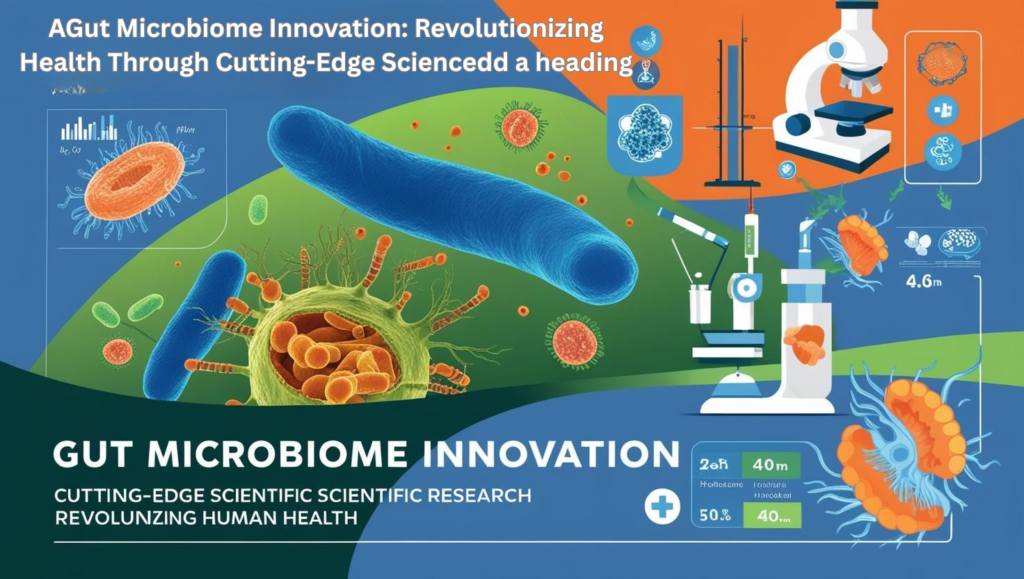
Gut Microbiome Innovation: Revolutionizing Health Through Cutting-Edge Science
The human body hosts an intricate ecosystem of microorganisms, with the gut microbiome standing out as a critical player in our well-being. Comprising trillions of bacteria, viruses, fungi, and other microbes, the gut microbiome influences digestion, immunity, and mental health. Recent breakthroughs in gut microbiome innovation are reshaping how we approach health and disease, leveraging cutting-edge science to unlock new possibilities in prevention, diagnosis, and treatment. This article explores these advancements, highlighting their transformative impact on health care.
Introduction to the Gut Microbiome
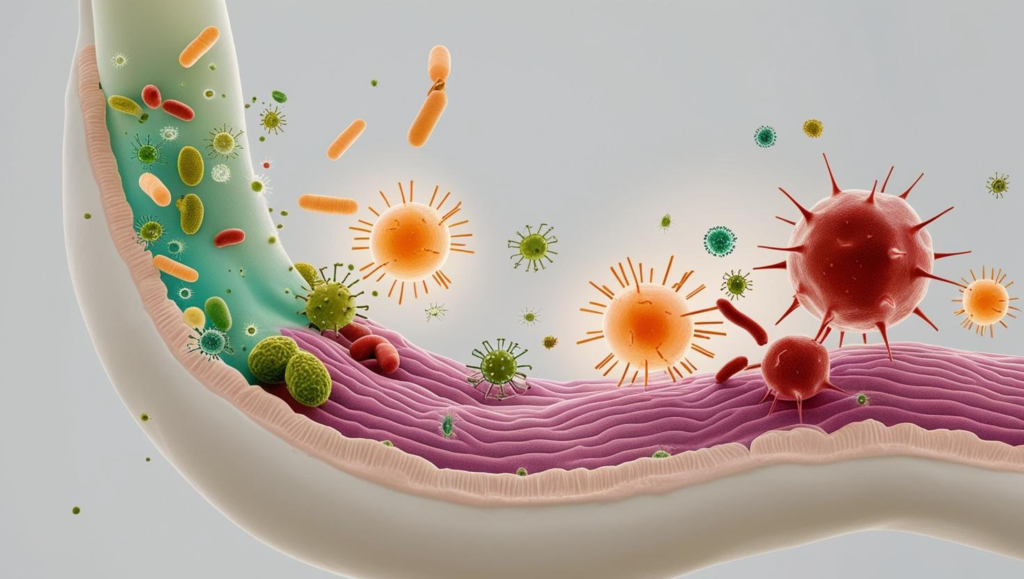
The gut microbiome refers to the vast community of microorganisms residing in our digestive tract. Far from being passive inhabitants, these microbes are essential to human health. They break down complex carbohydrates, produce vital nutrients like vitamins B and K, and help regulate the immune system. Beyond physical health, emerging research suggests they also affect our mood and cognitive function.
Over the past decade, gut microbiome innovation has surged, driven by a deeper understanding of its role in both health and disease. Scientists are now harnessing advanced technologies and novel therapies to explore how this microbial universe can revolutionize medicine, offering solutions tailored to individual needs.
Technological Advancements in Microbiome Research
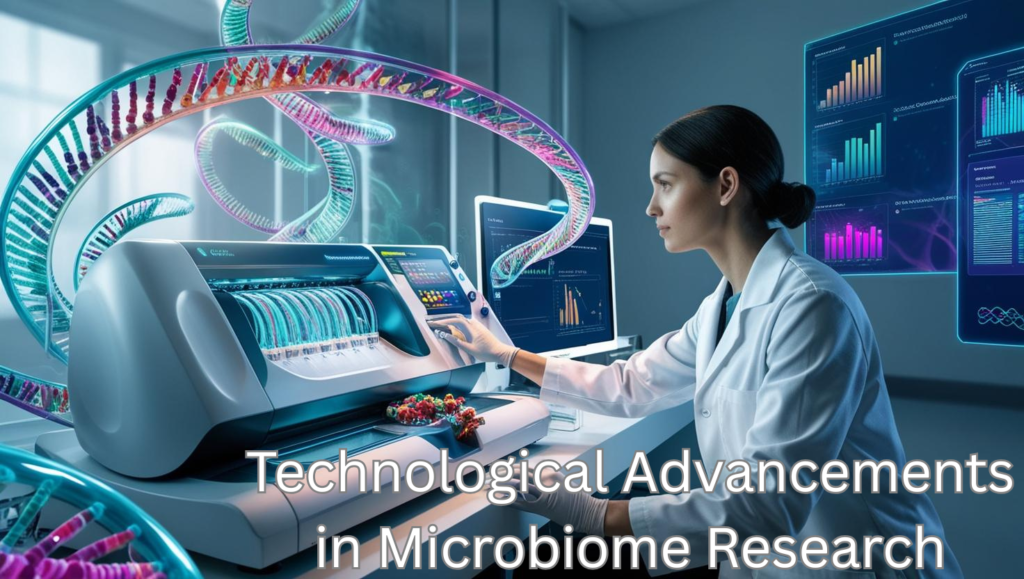
One of the cornerstones of gut microbiome innovation is the development of sophisticated technologies that allow us to study these microbes in unprecedented detail. Next-generation sequencing (NGS) has been a game-changer, enabling researchers to sequence the DNA of entire microbial communities quickly and affordably. This technology has revealed the incredible diversity of the gut microbiome, identifying previously unknown species and their functions.
Complementing NGS is metagenomics, which analyzes genetic material directly from environmental samples—in this case, the gut. This approach provides a comprehensive snapshot of microbial composition and activity. Coupled with bioinformatics tools, which use advanced algorithms to process massive datasets, these innovations have fueled large-scale initiatives like the Human Microbiome Project. Such efforts have mapped microbial profiles in healthy individuals and those with conditions like diabetes, obesity, and inflammatory diseases, laying the groundwork for future discoveries.
These technological strides in gut microbiome innovation are not just academic—they’re paving the way for practical applications that could transform health care.
Microbiome-Based Therapeutics
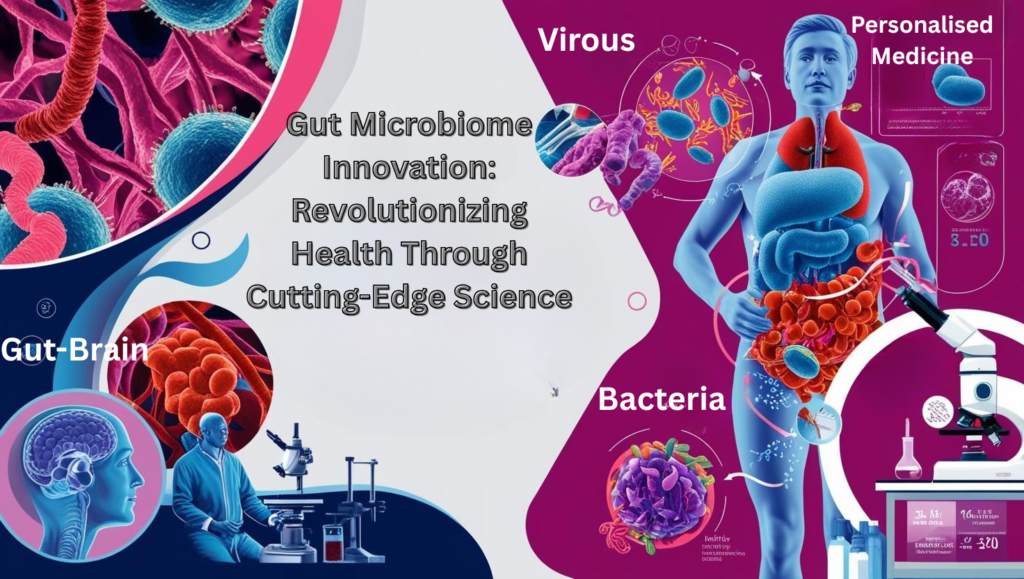
Perhaps the most tangible outcome of gut microbiome innovation is the rise of microbiome-based therapeutics. These treatments aim to restore or enhance the gut’s microbial balance to improve health outcomes. Probiotics, live beneficial bacteria, have long been used to support digestion and immunity. However, recent advancements have led to the creation of more precise, scientifically validated strains designed to target specific conditions.
Prebiotics, non-digestible fibers that nourish beneficial gut bacteria, are another area of innovation. By selectively feeding helpful microbes, prebiotics can shift the microbiome toward a healthier state. Research continues to uncover their potential in managing conditions like irritable bowel syndrome (IBS) and metabolic disorders.
The most revolutionary development in this space is fecal microbiota transplantation (FMT). FMT involves transferring stool from a healthy donor into a patient’s gut to replenish a disrupted microbiome. It has proven highly effective for recurrent Clostridium difficile infections, with success rates exceeding 90% in some studies. Scientists are now exploring FMT’s potential for treating inflammatory bowel disease (IBD), autism, and even obesity. These microbiome-based therapies exemplify how gut microbiome innovation is translating into real-world health solutions.
Personalised Medicine and the Microbiome
No two gut microbiomes are identical. Influenced by factors like genetics, diet, and lifestyle, this individuality makes the microbiome a powerful tool for personalized medicine—an area where gut microbiome innovation is making significant strides. By analyzing a person’s microbial profile, health care providers can gain insights into their unique health needs and design tailored interventions.
For instance, microbiome profiling can predict how someone might respond to medications. Certain gut bacteria metabolize drugs differently, affecting efficacy and side effects. This knowledge could guide doctors in prescribing antibiotics or chemotherapy agents more effectively. Similarly, dietary recommendations can be customized based on which microbes dominate an individual’s gut, optimizing nutrient absorption and overall wellness.
Companies are capitalizing on this trend, offering at-home microbiome testing kits that provide consumers with personalized health reports. These innovations highlight how gut microbiome science is shifting health care toward a more individualized approach, maximizing treatment success.
The Gut-Brain Axis and Mental Health
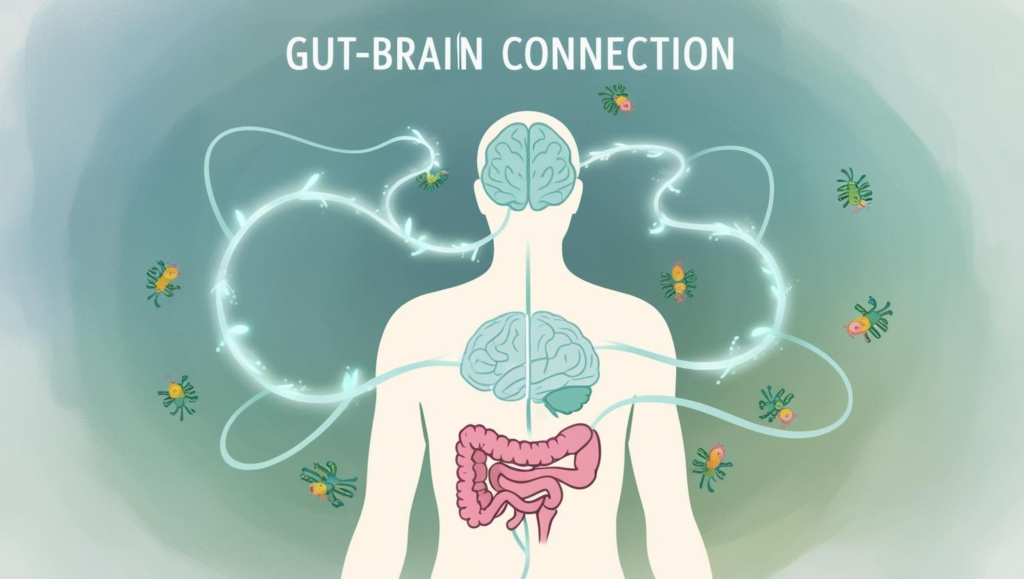
One of the most exciting frontiers in gut microbiome innovation is its connection to mental health via the gut-brain axis. This bidirectional communication network links the gut and brain through neural, hormonal, and immune pathways, with the microbiome playing a pivotal role. Studies have shown that imbalances in gut bacteria—known as dysbiosis—are associated with mental health disorders like depression, anxiety, and even neurodegenerative diseases.
For example, research has found that people with depression often have reduced microbial diversity in their guts. Conversely, interventions like probiotics and dietary changes can influence brain function, potentially alleviating symptoms. In animal studies, specific bacterial strains have been shown to reduce stress and improve mood, hinting at future microbiome-based mental health treatments.
While this field is still emerging, the promise of gut microbiome innovation in addressing mental health is profound. It underscores the microbiome’s far-reaching impact, extending beyond physical health into the realm of the mind.
Future Directions and Challenges
The trajectory of gut microbiome innovation points to an exciting future, but it’s not without hurdles. The microbiome’s complexity—its vast diversity and constant flux—poses a challenge for researchers. Standardizing methods to study and manipulate it remains a priority to ensure findings are reproducible and clinically applicable.
Another obstacle is establishing causality. While many studies show correlations between microbiome changes and health outcomes, proving direct cause-and-effect relationships requires long-term, large-scale research. Understanding the mechanisms behind these interactions will be key to developing reliable interventions.
Looking ahead, potential breakthroughs include synthetic microbiomes—engineered microbial communities designed for specific therapeutic purposes. The microbiome could also be a diagnostic tool, with microbial “signatures” as biomarkers for diseases like cancer or Alzheimer’s. Integrating microbiome data into precision medicine frameworks could further personalise health care, making treatments more effective and preventive strategies more proactive.
Conclusion

Gut microbiome innovation is at the forefront of a health care revolution. From advanced sequencing technologies to microbiome-based therapies and personalised medicine, cutting-edge science is unlocking the secrets of this microbial world. As research progresses, the gut microbiome is poised to become a cornerstone of modern medicine, offering new ways to enhance health, treat disease, and improve quality of life. By embracing these innovations, we’re not just understanding our bodies better—we’re redefining what it means to be healthy.
Questions and Answers
Q: What is the gut microbiome?
A: The gut microbiome is the diverse community of microorganisms, including bacteria, viruses, and fungi, that reside in the human digestive tract and play a vital role in health.
Q: How are innovations in gut microbiome research impacting health care?
A: Innovations such as advanced sequencing technologies, microbiome-based therapeutics, and personalized medicine approaches are revolutionizing the prevention, diagnosis, and treatment of diseases.
Q: What is the gut-brain axis?
A: The gut-brain axis is the communication network between the gut and the brain, influenced by the gut microbiome, which can affect mental health and cognitive function.
Q: Can the gut microbiome be used for personalized health interventions?
A: Health care providers can tailor dietary and medical recommendations to optimise health outcomes by analysing an individual’s microbiome.




Pingback: Comprehensive Analysis of Quinoa Nutritional Benefits - mysproutapp.com